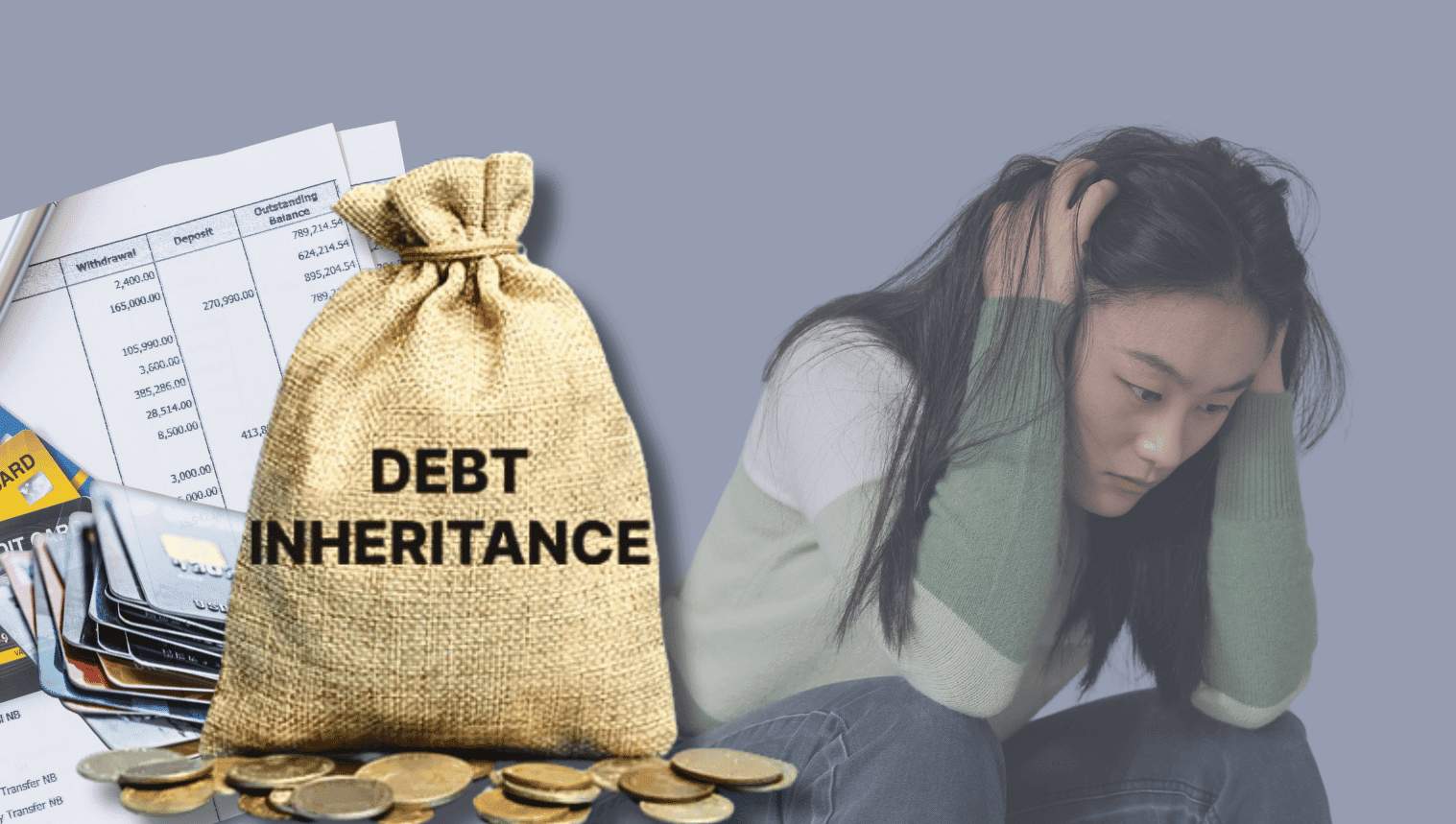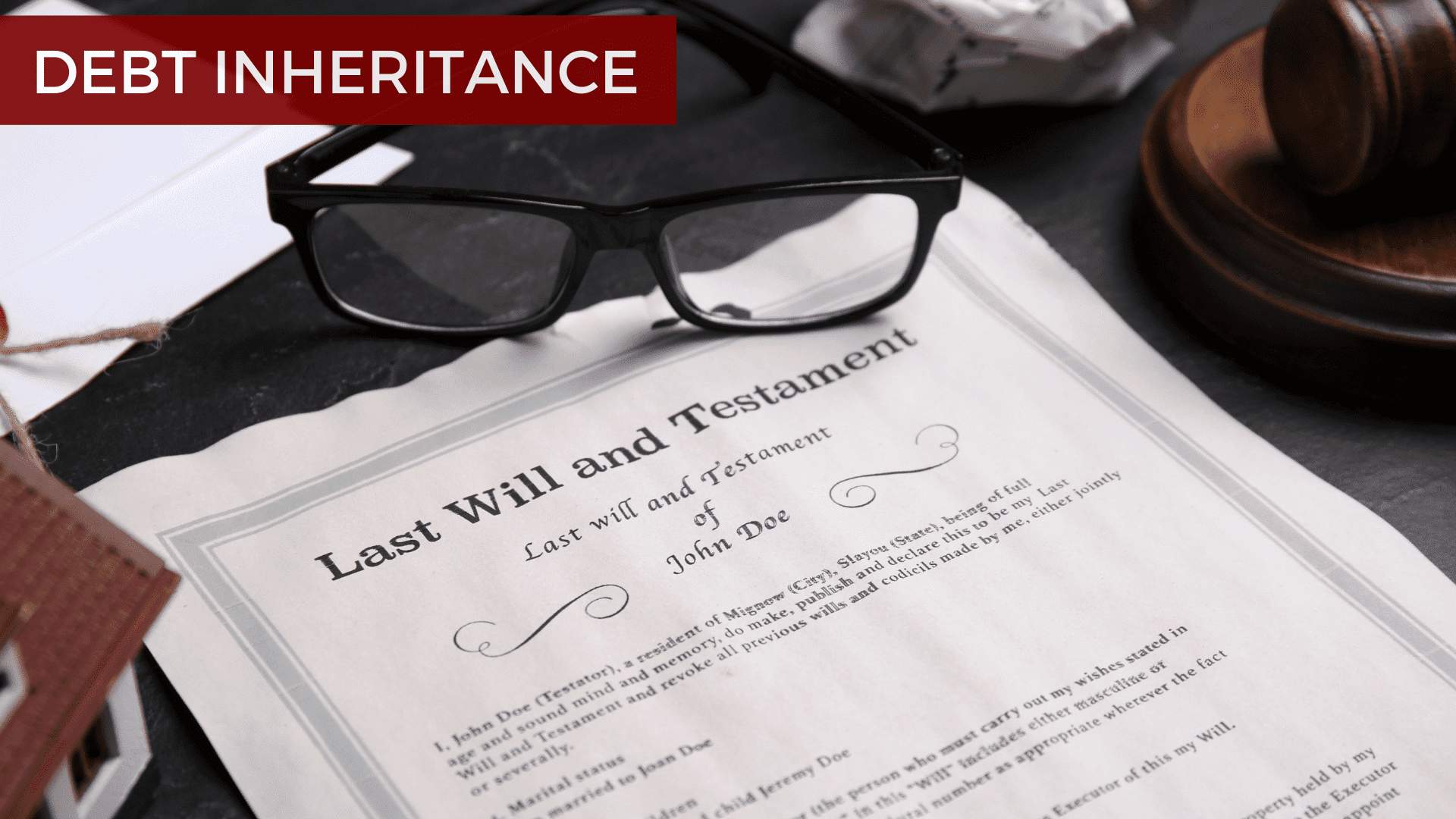Your rights around inheriting debt in Canada can vary depending on several factors, including provincial…

About Debt and Dying
I’ve been asked to talk about debt and dying, a topic that affects more and more people today. It’s too bad that an aging population must contend with debt in addition to health and so many other personal and family issues.
But, debt (and credit) is our modern money. We buy things on credit with a promise to repay sometime in the future. (Don’t worry, governments have the same problem – the debt keeps going up, and never seems to get repaid.)
Payday for creditors often comes with a claim against a deceased card-holder’s estate. Sounds a bit morbid to collect a debt after someone has left this world, but it is happening more and more as seniors seriously depend upon credit for their basic costs of living or borrow against the equity in their homes.
The above reference to a cardholder, of course, means credit card debt, a big part of a senior citizen’s debt load. However, there are all the other types of debt too like personal loans, car loans, payday loans, pawnbroker loans, co-signed loans, mortgages, tax arrears, student loans, child support arrears, friend and family loans. The bitter end to a lifetime struggle with inflation, taxation and ever growing debt increasingly ends in a bankruptcy for many seniors.
What a way to conclude a productive and meaningful life of raising children, paying taxes, electing governments and all of their public and community service.
Research confirms that seniors will forgo their medicine if they’re a little short of cash. They will pay creditors often before they buy food. The only problem with this method of budgeting is that it is short-lived – either the patient dies under-nourished or without necessary medicines.
Debt is a symbol, on a grandiose cultural stage, just like the credit card represents something much more profound than eager shoppers, enterprising merchants or the banks. The credit card was and continues to be a symbol of the computer age – automation, electronic transfers, internet banking and eventually, cashlessness.
A credit card represents something much more important than a social insurance number – it reflects a person’s character, their identity and their credit worthiness. It’s a huge symbol of the advances made in the 20th century and the affluence that it brought – throughout the global community. Not only should you not leave home without it, you need it to navigate through the simple day-to-day transactions of modern consumer commerce.
Yes, a credit card is a passport – to travel, for vacations, for online-shopping, to buy groceries, gas, to pay annual fees and expenses like house taxes, car and property insurance and much much more. Your credit card is your identity. Without out it, you’re a nobody. You can’t do basic things.
Fumbling through your wallet searching for those archaic old dollar bills signals a much more negative image – that you’re poor – you’re an outcast because you don’t have credit or a credit card. You’re all alone. Nobody will trust you.
The fear of losing your credit rating thrusts people through unbearable levels of hardship. How much is your pride worth? What is the price tag on your integrity? “Oh, you don’t pay your bills? What kind of person defaults on their contracts?” These are examples of how many people feel or are made to feel by friends, family and bill collectors.
Our society will accommodate, respect and accept debtors – over-encumbered, over-extended, and desperate in all their age and income groups – but not default on payments. This is the unforgiveable taboo in a credit society. The pressure is enormous for anyone who struggles with a debt problem.
For many seniors who learned in their youth the importance of fulfilling promises, missing a payment on a credit contract is a moral issue. Under certain circumstances it may be considered moral, but we need to remember that credit and debt are specifically financial issues. The high interest rates on charge cards generously compensate banks and the credit card companies for whatever might go wrong in the marketplace.
So, we need to better understand the debt problems of middle and lower income individuals and families. There are many causes, not just one. The ultimate punishment in a credit society is a bad credit rating which ostracizes and marginalizes people. We should better focus our attention on the abusers for punishment and better help honest but overcommitted debtors.
Illness is a huge factor in creating impossible debt problems for seniors – and contains the potential to drive them into a bankruptcy – a frightening place for people who believe that defaulting on their credit contracts is a moral issue.
Bankruptcy, for your information, is a legal process to discharge honest and unfortunate individuals and families from impossible debt problems, and give them a second chance. (It’s also there to punish the abusers and protect the integrity of the credit system.)
Seniors are a different group from all others. They helped build the Canada that so many covet and enjoy today. They want to do the right thing, and they are not intimidated by hardship or even death.
What we need to do, in this all-encompassing debtor economy, is extend a compassionate hand to our seniors – help them to better understand their choices and options – what is harmful and what is constructive. They need an honest and helping hand.
More on the many issues involved with debt and dying to come.












